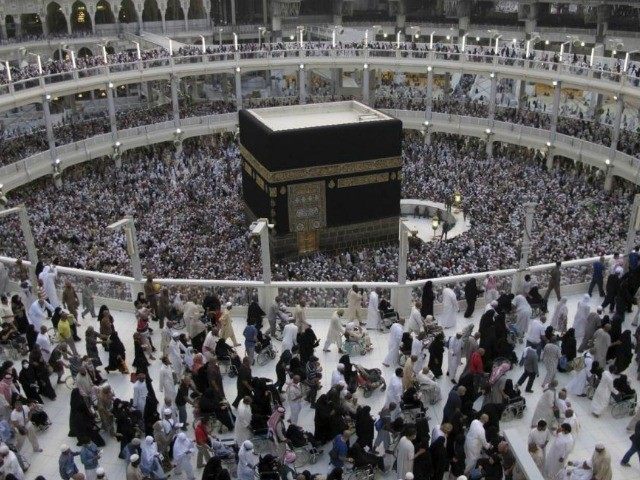Emails obtained by the Associated Press show discussions among the senior administrators of the World Health Organization from as early as June 2014, in which officials refused to yet declare a state of emergency in West Africa over the Ebola outbreak for fear of angering local governments and interfering with the annual Muslim pilgrimage to Mecca.
Patient Zero in the current Ebola epidemic, which has to this date claimed at least 10,000 lives, was diagnosed in Guinea and died on December 6, 2013. It was not until February that the virus showed signs of spreading rapidly. By April, hospitals in the United Kingdom issued an alert to workers to be aware of Ebola symptoms. In June, Doctors Without Borders warned the situation had gotten “out of control.”
It is in June that the Associated Press emails show the World Health Organization and UN officials arguing over whether to issue the emergency call. The Associated Press reports the emails show that, “among the reasons the United Nations agency cited in internal deliberations: worries that declaring such an emergency – akin to an international SOS – could anger the African countries involved, hurt their economies or interfere with the Muslim pilgrimage to Mecca.”
Dr. Sylvie Briand, the head of the WHO’s pandemic unit, called declaring an emergency a “last resort” in a June 5 email, suggesting “other diplomatic means” to combat the virus. Another email describes an emergency response as “a hostile act” in the eyes of some foreign governments.
Speaking to the AP, Marc Poncin, Doctors Without Borders then-mission chief in Guinea, said those dispatched by the WHO to Conakry, Guinea “had no idea how to manage an Ebola epidemic” and did little to improve the situation before the emergency declaration. The WHO defended itself in an email to the Associated Press in which they stated:
People often confuse the declaration of a Public Health Emergency of International Concern with our operational response. It is very different. WHO mounted a strong operational response a year ago when we were notified the outbreak was Ebola.
By the time the declaration of an emergency was confirmed on August 8, almost 1,000 people were certified dead of the virus, though actual numbers are estimated to be much higher as victims’ families worked to hide bodies from authorities and others died in areas too remote from medical officials.
It is worthy of note that, in May, the World Health Organization alleged that the Ebola virus had been subdued in large part. Claiming that the outbreak “could be declared over on May 22,” the WHO pulled staff out of west Africa. The decision could have triggered a more rapid spread as attention was diverted away from preventing the virus from spreading.
The United States officially issued a response to the Ebola crisis in September, when President Obama pledged to send 3,000 troops to Liberia.
The emails revealed by the Associated Press corroborate complaints by private medical and charity groups that the response to the Ebola virus was not fast enough to stop it from becoming an epidemic. Doctors Without Borders, in particular, warned in August that the response to the outbreak was “almost zero” from the international community, and that a “lack of political will” was preventing any substantive response to the virus from occurring.

COMMENTS
Please let us know if you're having issues with commenting.